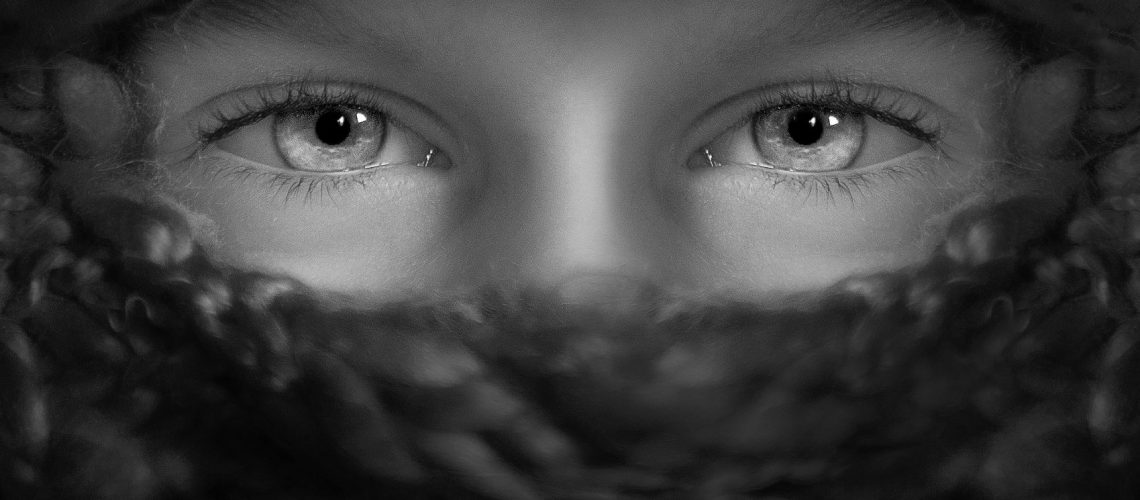Some may read this blog and say I am presenting a biased view of being a victim. That is intentional. Based upon my own personal experience, as well as my clinical work, I believe this is a view that must be taken to liberate ourselves and each other from the place of victimhood when we’re ready.
On Being A Victim…
In my experience, being seen as a victim in our society implies weakness, or even perhaps stubbornness. I’m here to tell you a different story about the emotionally loaded topic of being a victim, from a trauma-based perspective.
We’ve all heard it, and maybe we’ve even said it:
“She’s acting like such a victim.”
“You need to forgive, for you.”
“It’s time to just let it go. Move on with your life.”
“Get over it already! You can choose happiness instead.”
Truth…
First off, being a victim doesn’t mean you’re weak.
What it means is that at some point in your life, you got completely knocked off your feet by people or circumstances. In terms of childhood abuse, you may have been violated, injured, or neglected by someone who was more powerful than you, and even worse, who was supposed to love and protect you.
It means as an adult you may be raw, wounded, overwhelmed, and living a life greatly affected by the past.
It means you may need time (lots of it), support, unconditional love, and acceptance to heal.
You may need to learn the skills you never received as a child to form a solid foundation under your feet.
Instead of receiving the things you need, you may instead get someone looking at you with frustration, avoidance, or pity, wishing you’d stop “oozing your victimhood everywhere.”
Lost? Or leading the way?
In the toxic family structure, it makes everything run much smoother if everyone pretends nothing is wrong. What happens when someone’s pain is so strong they just can’t hold it in anymore and they act out or speak up? What happens when they bring attention to the truth of the situation, in a last-ditch effort to find relief or get help? It upsets all the dynamics that were put in place to “protect” everyone, while finally offering the possibility of healing. Think of it like a mobile above a child’s crib. When one person moves, it forces movement in everyone else also. But the one who starts speaking first can be looked upon as a burden. The black sheep.
“We’re all here together to celebrate Christmas. Why can’t you just enjoy it and quit being such a downer?”
Perhaps because you are depressed and on the edge of suicide, and almost didn’t make it out of bed that morning to get there at all.
Is the victim the weak one? Or the strong one…for allowing the pain to be felt and for acknowledging the truth?
In an ideal world the family would gather around the victim and support them in their pain and healing, but in a toxic family system “we don’t know what we don’t know.” We can’t move out of our old unhealthy patterns of behaving and relating, until we can, until we get the love and support we need to do so. Removing all judgement, we are all doing the best we know how.
Stigma
Recently as a client explored a wounded part within himself, I mentioned the word victim and he looked concerned, as if he were doing something wrong and had better get through it quickly. I shared my belief, and my experience, that if one is in a “victim mode” they have earned the right to be there!
In abuse or neglect, which creates victims, there is a power differential. In childhood abuse, the adult abuser knows what they are doing, while the vulnerable child who needs protection and love walks unknowingly into it, and then may be forced to live it over and over.
Fast forward to adulthood, to the trauma survivors who have not gotten the support to heal the deep wounds that fester within them. They don’t have the tools, strength or understanding yet to do it any differently, so they unknowingly walk head on into other abusive situations where there is again a power differential and they are again the victim, to an abuser who knows what they are doing. At that point, society says that you are an adult and you chose it. I have a different perspective.
I have known childhood sexual abuse survivors who were told by spiritual gurus and people they held in authority to just “get over it,” as if it’s a choice that will resolve it all in an instant. I have also heard the following, “From a greater spiritual perspective, both parties chose to embody and have that experience. There is nothing to judge and they’re not a victim.” That may or may not be true, but that statement does nothing to bring comfort or healing to the raw, vulnerable, wounded human being receiving it. Before we can possibly even begin to digest such information, if it applies to us or resonates with us at all, we need the validation, love and support that we’ve lacked, and we need time to heal from the inside, out. Being told this “spiritual” perspective has retraumatized too many already wounded victims.
One woman was told to go to her abuser — her father, who had never apologized or owned his behavior — and tell him that she was fine and none of it mattered anymore, that he had never really hurt her at all. This was all in an effort to allow the abuser to die in peace. While perhaps a noble gesture from one perspective, it is an example of abject self-abandonment, betrayal and denial of the victim’s own needs and feelings. Imagine how that felt and the effect it had on the unhealed inner children within her.
I have also heard, ‘being a victim doesn’t serve you.’ In truth, it does serve you if it’s the only coping mechanism or operating system you’ve got.
Recently, someone gave me another reference point of the skewed view we have of victims. This is someone who I know cares about people. In talking about a mutual acquaintance who was in a strong victim place, she stated, “Well, I guess she’ll change when she decides to change.” With a strong conviction in my heart, I gently gave her my perspective.
No. It isn’t when she decides to stop being a victim. No one wants or chooses to be a victim. No one wakes up one morning and says, ‘You know, I think starting today, I’m going to see myself as a victim.’ If a person identifies as a victim, and/or acts needy, pissed off, depressed, anxious or anything else, it is because they were wounded and don’t have the tools yet to be any different. It’s because the pain and wounding that resulted from abuse or neglect is still locked up inside, screaming for release. Again, they have earned the right to be a victim. Some victims act out, hurt people and so the generational cycle continues. I’m not simply excusing the inappropriate behavior that a victim may act out. I’m bringing awareness to the core reason for it, to create space for recognition of the truth of it, and to open up the possibility for true healing.
Coming Together For True Healing
We’ve heard the words ‘victim blaming’ and ‘victim shaming’ being thrown around, making the blamer or the shamer into the “bad guy.” What if we look at it from a different angle?
Instead of looking at the dynamics as those of ‘victim’ vs. ‘judgmental person,’ terms that divide – how about looking at it in terms of ‘victim’ and ‘person who is uncomfortable with what is arising in their own being,’ owning our own thoughts and feelings and bringing us together rather than further separating us.
Why is a victim, deep in their pain, threatening to so many people? It makes the righteous unbearable, certain they know exactly what the victim should be doing instead. It makes us all squirm a little to hear someone call out their abuser, or worse yet, express anger at them, especially if we are still trying to protect our own family or inner “secrets.” Many want to turn their heads the other way and make it stop. Sometimes victims in the anger stage, can be LOUD and even destructive with their anger, which, having never been validated before, feels like such a HUGE emotion to be present with when it is surfacing. Sometimes victims can be toxic to be around, their adult abusive relationships bringing up all the abuse from childhood. Perhaps that can be expected after all that the victim lived through. What if we all recognized that was a necessary stage to healing and offered patience and presence within our own self-care boundaries?
Why is it so threatening to people? I think many people just don’t know how to react, either being unfamiliar with that level/type of pain or having not received the support they’ve needed themselves in dealing with their own wounding. Pain isn’t something we’ve been taught to embrace, yet what are we all really craving when we are hurting? To be seen, heard, embraced and accepted…which is different than being fixed.
Seeking greater understanding will bring healing. The next time you are with someone that is “acting like a victim”, and you feel that little inner squirm, look inside of yourself. Is there a key in all of it to unlock something inside of you, further setting yourself free? True healing happens when we bring our awareness inside of us.
A Different Way
Imagine if someone came to me professionally, after a history of victimization, and they were in a place of anger, demonizing their abuser from an adult relationship. What do you suppose the effect would be on them if I said, “Well, you ARE an adult. You made the choice to walk into the relationship, and to stay as long as you did.”
Contrast that with the scenario of me offering love and a safe space to exist, remaining present with them as they reveal their deepest wounds. “I understand that you are hurting. Tell me about it…,” allowing them to explore just how painful it was. This provides us with the opportunity to finally validate and heal the parts of ourselves that were injured so long ago and that continued to seek out the same toxic situations they were familiar with. All of this, done without judgement is an incredible gift!
When given a safe place to heal, without the heavy armor we’ve lugged around for so long, we start to feel safe in our own skin. I see people who tell me that for the first time in their lives, they feel like they can exist as who they are, that they have value, and aren’t weak or crazy. As they learn to set boundaries and make choices, caring for themselves, they can allow those old feelings that were stuck deep inside to finally release, lightening their load. To honor ourselves at that level is empowering, and the process of healing and coming out of victimhood begins.
It’s ok to be exactly where you are!
You are perfectly YOU.
It’s okay if you feel like a victim.
You aren’t crazy, weak or needy.
Yes, it feels lonely sometimes, but you aren’t the only one.
There is support available. You may not have gotten in from the people you’d hoped to get it from, but there are people out there who will support you.
Being a victim probably isn’t where you will choose to be for the rest of your life, but acknowledging where you are now, embracing it to the fullest and loving and supporting yourself is the first step to change. How else could we possibly have the courage to change?!
What I know after fighting my way out of victimhood is this – I am not equipped to judge anyone who is grieving, acting out as a victim or going through a battle inside that I do not understand. I am not in their head and I have no way to know how much they hurt, what is required to get them out of the pain, and how much strength they have left inside to continue on. Even though I have been through my own battles, I truly cannot know what it is like to live in someone else’s skin so I cannot assume to know the right way for them to heal. They know. They will tell us if we listen.
These are my thoughts. I would love to hear yours.
Erika
Photo by Kat J on Unsplash




2 thoughts on “Being a Victim – How To See It Differently & Heal”
Thanks for the post!
You’re welcome!